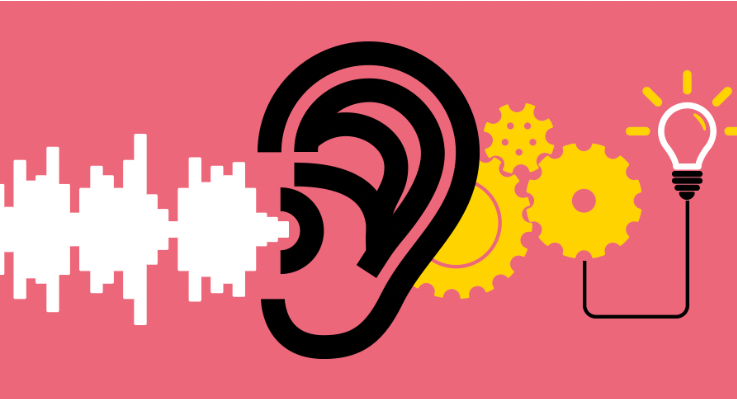The Power of Listening

One of the basic 5 senses is obviously hearing. The sense of hearing is fundamental for basic communication, understanding, and responding. Most humans use their ears to listen to various sounds, tones, and words. This by itself already showcases the importance of the ability to use your ears, hearing, and listen. However, most people do not listen adequately to others and think they should be the one who speaks, telling stories, and make sounds. This should not be the case since there are so many more possibilities by just listening to somebody else talk.
In this article, I'm not going to write about the regular act of listening but I dive a little bit deeper into why some forms of listening are more powerful than others: empathic listening. As Stephen R. Covey mentions in his book 'The 7 Habits of Highly Effective People', to be precise in habit 5: seek first to understand, then to be understood, he relates to the phenomenon of listening empathically to what other people have to say and the underlying meaning in those words and their para-verbal communication through body language and undertone in the voice. With empathic listening he refers to actively listening to actually understand what somebody else says and putting yourself in their frame of reference, looking inside their head and the world they see through their paradigm. With empathic listening, you listen with your entire body while being engaged and paying attention to feelings and emotions. You don't refer back to your own frame of reference but let the other person talk while you just listen and keep listening.
The results of listening empathically are astounding. People tend to open up, trust you, and make better conversation. People feel like they are being heard and understood. Sometimes that is the only we thing we, as human beings, want in life. Someone to who you can tell your story, your struggles, or your achievements. You don't want to shift the focus from you to the other when someone finds a hook to which they can hang up their story about the same topic you were talking about. However, that is what happens most of the time when you have a conversation in which you want to open up. People love to talk about themselves which works counterintuitive in creating important relationships. Of course, not every conversation requires empathic listening but sometimes, depending on the context and emotions involved it is helpful to remain quiet and just actively listen to your partner, friend, or even a stranger. Making them feel heard and understood.
Back in the day, I used to think too much about what I wanted to say in the middle of a conversation instead of actively listening to what someone was saying. This affected my listening and conversation skills in a negative way that I didn't even paid attention to what the other was saying when I simply was thinking of moments where I could interfere and take the word to respond. This is counterproductive in the way that I used to be distracted by my own thought processes. Nowadays, I use empathic listening when needed without thinking about what to say next. The thing is, when you're listening actively, and not thinking, the conversation occurs very naturally. You also don't have to give the next best insight ever. Sometimes an agreeing sound, a sincere 'yeah' or 'okay' is enough to let the other know you're actively listening to their story and they can proceed. The one who is talking can continue their story and say what they want to get off their chest. In the end, that is all what matters and they feel much happier and relieved that someone was there to listen, pay attention, and think along.
So, to be a better talking partner, create a better relationship, or want people to open up. All you have to do is be an active listener and do it in an empathic way through body language, eye contact, nodding, summarize and show that you pay attention that what is being said. However, this is not something that you change from one conversation to the other. This is a skill that requires practice and the first stage is to become aware of the skill, which I hope this article has provided for you. To develop this skill, you could dive into more theory in the form of books like 'How to make friends and influence people' by Dale Carnegie and 'The 7 Habits of Highly Effective People' by Stephen R. Covey. Furthermore, Google can be your best friend to find more sources and eventually thinking about it and implementing it during conversations would be the best way to move forward if a conversations requires this method of listening.
